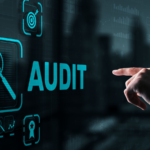The role of an internal auditor within an organization is often associated with ensuring compliance, identifying risks, and improving internal control systems. However, the skills and experiences gained as an internal auditor can also provide a solid foundation for aspiring professionals to reach executive positions, including that of a CEO. This article explores the pathway from internal auditor to CEO and highlights the key factors that contribute to a successful transition.
- Developing a Strong Financial Acumen: As an internal auditor, one of the primary responsibilities is to assess and analyze financial information. This experience provides a deep understanding of financial statements, budgeting, forecasting, and overall financial management. Developing a strong financial acumen is crucial for aspiring CEOs, as it allows them to effectively evaluate business performance, make strategic financial decisions, and communicate financial objectives to stakeholders.
- Building a Broad Skill Set: Beyond financial knowledge, internal auditors develop a diverse skill set that encompasses risk assessment, compliance, process improvement, and problem-solving. These skills are highly transferable and valuable in executive leadership roles. Internal auditors often gain experience in managing projects, leading teams, and collaborating with various departments, fostering a holistic perspective of the organization’s operations.
- Developing Business Acumen: To transition from an internal auditor to a CEO, individuals must develop a keen business acumen. This involves understanding market dynamics, competitive landscapes, industry trends, and the organization’s strategic objectives. Internal auditors who actively seek opportunities to engage with different business units and understand their functions gain valuable insights into the organization’s operations, enabling them to make informed decisions as future leaders.
- Building a Network and Influencing Skills: Networking and relationship-building are essential for career progression. Internal auditors who actively engage with stakeholders, including executives, board members, and other professionals, can expand their network and establish influential relationships. Developing strong influencing skills helps internal auditors gain credibility, showcase their leadership abilities, and position themselves as potential candidates for executive roles.
- Seeking Continuous Learning Opportunities: To be considered for top leadership positions, internal auditors must display a commitment to continuous learning and professional development. This includes pursuing certifications such as Certified Internal Auditor (CIA), Certified Public Accountant (CPA), or advanced degrees such as an MBA. Engaging in relevant industry conferences, workshops, and seminars can further broaden knowledge and enhance leadership capabilities.
- Demonstrating Leadership Potential: Successful internal auditors who aspire to become CEOs must demonstrate their leadership potential. This can be achieved by taking on leadership roles within professional organizations, leading high-impact projects, and actively seeking opportunities to mentor and coach colleagues. Exhibiting strong communication, decision-making, and problem-solving skills showcases the ability to drive change and inspire others.
- Gaining Operational Experience: While internal auditors possess a deep understanding of risk management and controls, gaining operational experience is crucial for a CEO role. Seeking opportunities to work in different operational areas or taking on roles with broader responsibilities provides valuable insights into the organization’s core functions. This experience enhances the internal auditor’s ability to understand the interdependencies of various departments, make strategic decisions, and align operational activities with the organization’s objectives.
- Seeking Executive Exposure: To transition to a CEO role, internal auditors should actively seek exposure to executive-level decision-making. This can be achieved through participation in cross-functional projects, presenting findings to senior management, or working closely with executives on strategic initiatives. Seeking mentorship or sponsorship from senior leaders can also provide valuable guidance and open doors to future executive opportunities.
Conclusion:
While the path from Internal Auditor’s to CEO may not be a direct one, the skills and experiences gained as an internal auditor lay a strong foundation for aspiring leaders. Developing financial acumen, building a diverse skill set, acquiring business acumen, networking, continuous learning, demonstrating leadership potential, gaining operational experience, and seeking executive exposure are key steps towards making this transition. By embracing these opportunities and leveraging their unique perspectives, internal auditors can successfully ascend to the pinnacle of organizational leadership as CEOs.




